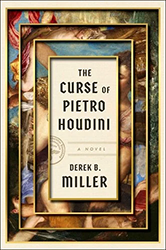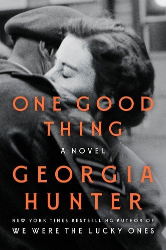Hungarian-born author Edith Bruck survived deportation to five concentration camps, lost her family, and settled in Italy in 1954. Her award-winning work — including more than twenty books — is often compared to that of Anne Frank and Primo Levi, and yet is hardly known in the United States. This impressive book of short stories, originally published in 1962, and freshly translated from Italian by Jeanne Bonner, will hopefully help to change that.
This Darkness Will Never End does not directly depict the Holocaust. Instead, this collection of fable-like tales plunges us into the lives of poor, rural, Jewish families — mostly from the point of view of women and children — before, during, and after the war. We know their future, but they do not. This vanished world is vividly rendered and incredibly poignant, particularly because of what is inferred.
In the title story, a young brother and older sister are forced into a boxcar of Jews headed for slaughter. The brother is blind and his sister, used to describing the world to her brother, reassures him they are in a well-furbished train car: “There are plenty of red velvet seats and lovely curtains. The people are well dressed and all look very nice, but they are weak — some are suffering even more than you are.” But Beni complains that he doesn’t feel well, insisting, “This darkness will never end. I know it.” Knowing and not knowing is also at the heart of another story, “Sylvia,” told from the point of view of a non-Jewish boy who rescues a child thrown from a train and, in turn, is rescued by her.
In most of these stories, there is a wide cultural gap between the generations. Parents live, think, and act as if they are operating within the rules of the parochial past, while their children have one foot in the cosmopolitan twentieth century. They yearn to be free of the old ways and dream of escaping to Israel. For girls, the clash between generations is especially difficult; children sleep at the foot of the family bed, and parents can’t understand when one daughter refuses. It’s an era of huge change, and Bruck shows it to us in all its sadness, humor, and beauty.
Eleanor Foa is an author, journalist, and corporate writer. Her memoir MIXED MESSAGES: Reflections on an Italian Jewish Family and Exile comes out in November 2019. Her work appears in national newspapers, magazines and websites. She is the author of Whither Thou Goest and In Good Company, President of Eleanor Foa Associates (eleanorfoa.com), past president of the American Society of Journalists and Authors, and received literary residencies at Yaddo and the Virginia Center for the Creative Arts.





